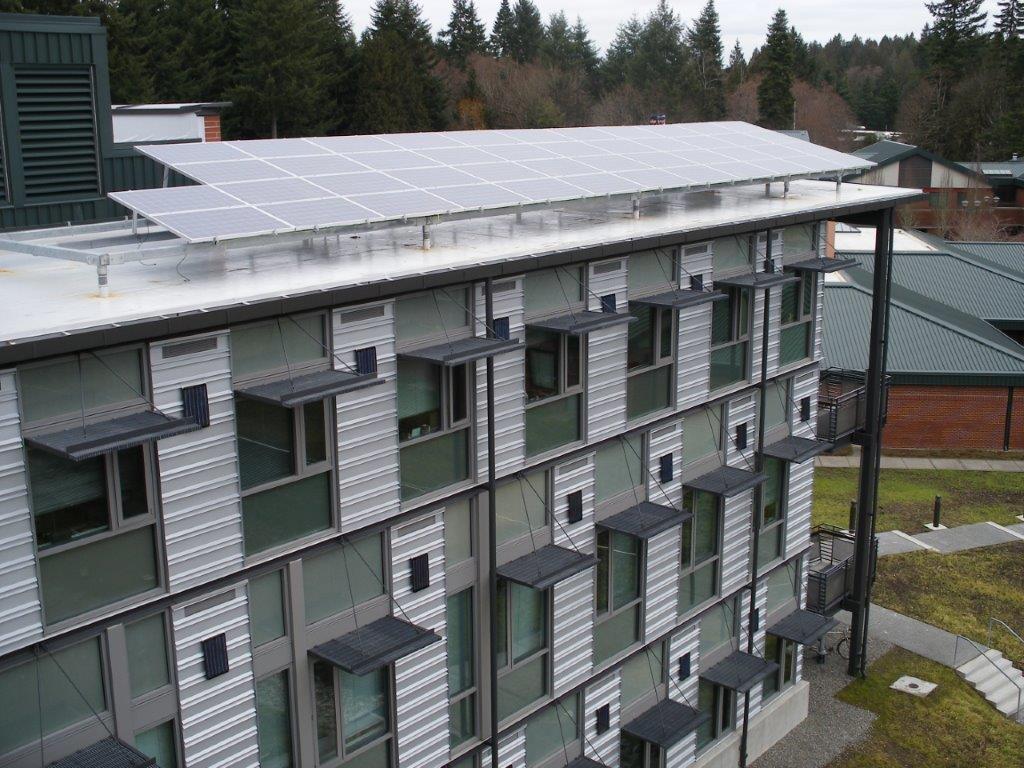Submitted by South Puget Sound Community College Foundation
South Puget Sound Community College (SPSCC) staff, faculty and students have a lot to be proud of when it comes to implementing innovative climate solutions to protect ecosystems on more than 100 acres across the college’s campuses. From installing solar panels to help mitigate consumption of nonrenewable energy resources, to adopting safe, pesticide-free landscaping practices that protect watersheds, SPSCC finds innovative ways to continuously evolve its approach to environmental stewardship on campus. These efforts are also reflected in the work faculty are doing to design related curricular activities.
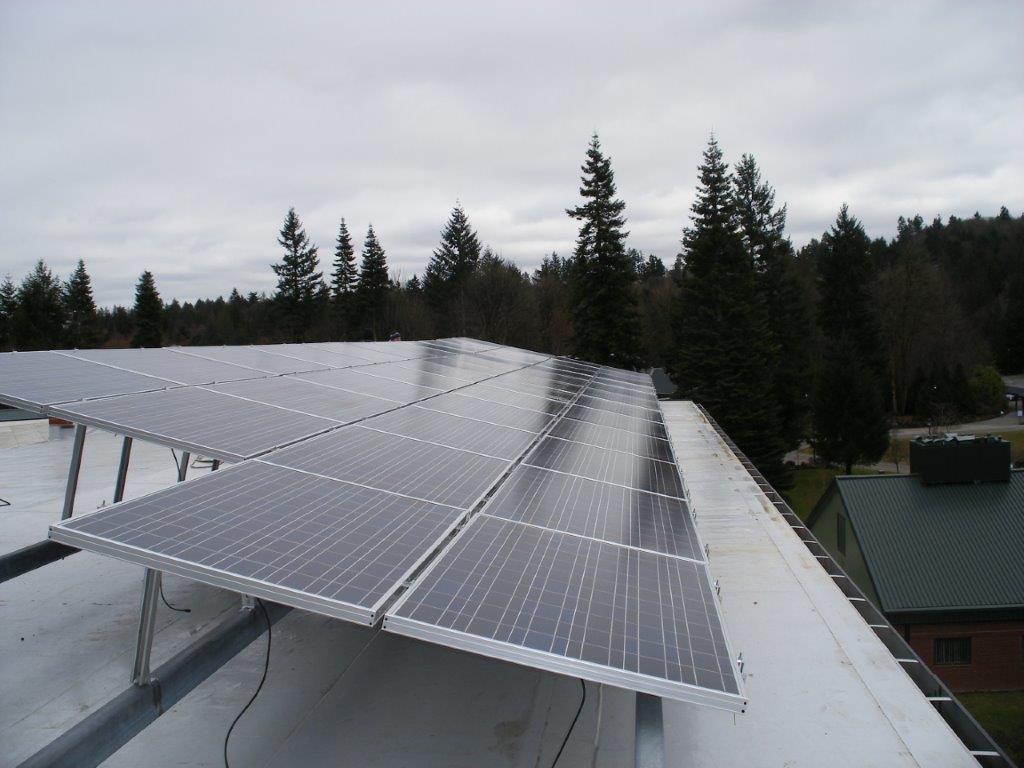
Tracking Energy Efficiency on Campus
For more than 10 years, SPSCC’s Facilities Department has been tracking energy consumption and carbon emissions from buildings on campus. This data helps the college comply with Washington State’s Clean Buildings Act, which was signed into law in 2019 to provide performance standards and encourage energy efficiency improvements and innovations for large commercial buildings (greater than 50,000 square feet) across the state.
SPSCC Director of Facilities Laura Price shared, “By understanding where daily campus activities and our sustainability practices impact energy consumption, we have opportunities to target areas where we can improve and introduce innovations.”
One significant innovation was the installation in 2008-2009 of a 20kWh solar array, which can be seen on Building 35 (the Natural Sciences building). Performance tracking for 2023 indicated the panels produced enough kilowatt hours to power a typical household in the United States, based on averages reported in a December 2023 U.S. Energy Information Administration report.
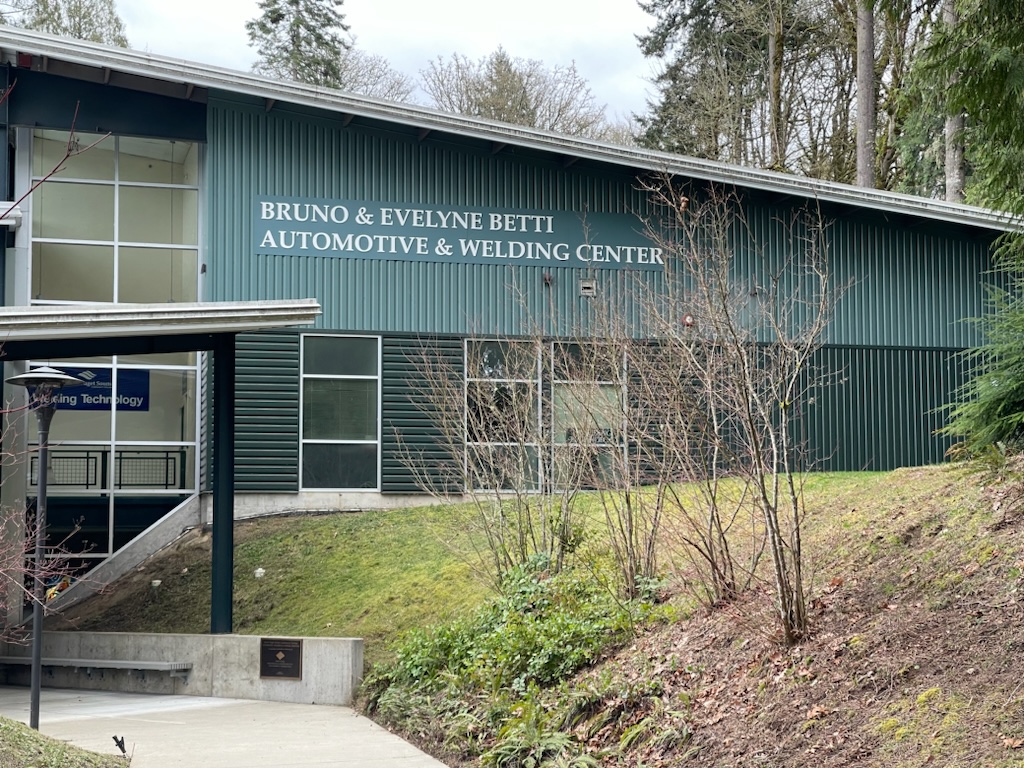
Green Building Performance Standards
The SPSCC Olympia campus contains three green buildings that meet rigorous Leadership in Energy and Environmental Design (LEED) Gold-level certification standards. They include the Natural Sciences building, as well as Building 23 where the Office of Instruction is based, and the Bruno & Evelyne Betti Automotive & Welding Center.
The LEED green building standard is an international rating system for measuring healthy, efficient, and economical green buildings. To achieve the highest levels of the LEED Gold or Platinum level status, buildings and surrounding grounds are rated on a variety of environmental and social criteria including energy efficiency, habitat impact, sustainability practices, building materials, and many other essential factors that define the best green building possible.
SPSCC’s Sustainable Landscaping Protects Watershed Habitats
SPSCC’s is also home to Percival Creek–a salmon-bearing stream that runs through the center of the forest-lined campus. Toxic pesticides can pose a threat not only to clean water, fish, native plants, and wildlife resources, but also to humans. To protect the health of the watershed and surrounding habitat and students, SPSCC’s Grounds Department team does not use pesticides or fungicides when performing landscaping and gardening maintenance tasks.
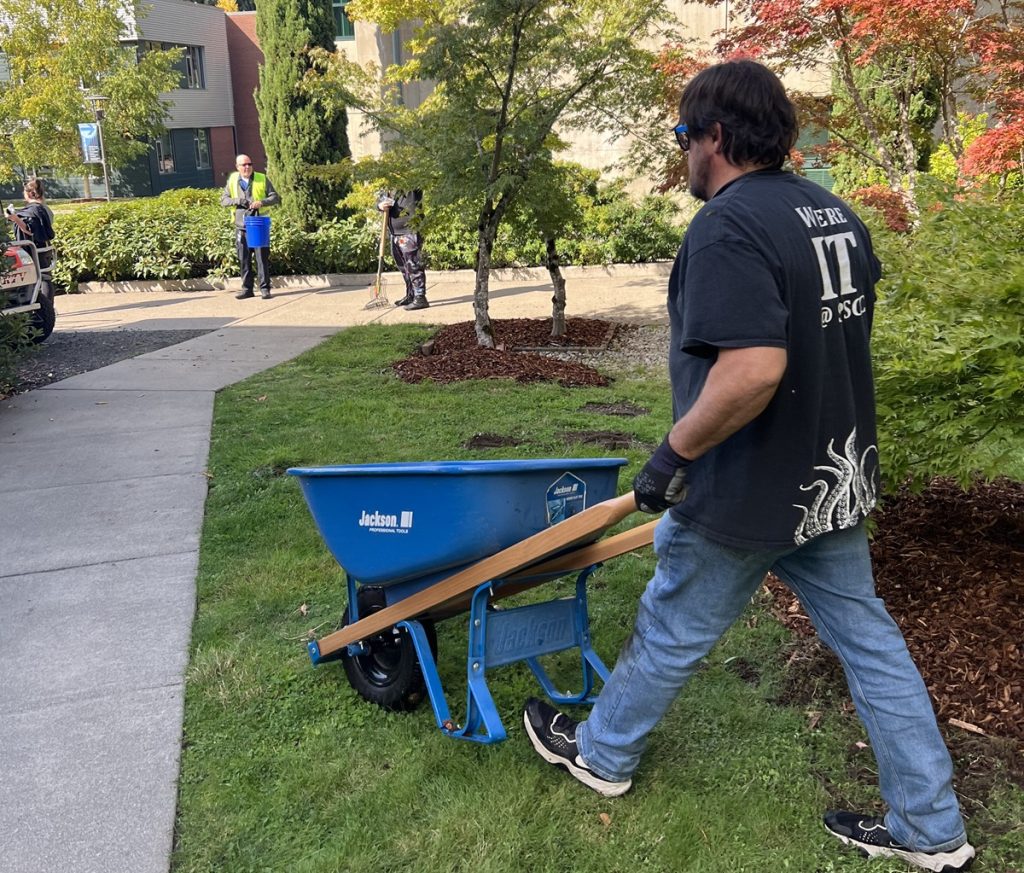
Dr. Tysha Tolefree, vice president for finance & operations commented: “Our Grounds Department does exceptional work maintaining SPSCC’s beautiful campus. Their practice of not utilizing pesticides requires more effort, but creates a healthier and more sustainable environment, laying the groundwork for a healthier SPSCC.”
Grounds Department staff’s pesticide-free landscaping practices include hand-pulling weeds and using organic fertilizers. Their team also implements circular practices such as collecting and mulching fallen leaves and debris to ensure nutrients return to the soil and replacing fallen trees with new saplings.
Maintaining the campus’s urban forest, which includes a large collection of Japanese maple trees gifted to the college in 2007 by Frank and Gudrun Byles, is another important aspect of keeping the campus healthy and beautiful.
In Fall 2023, as part of their commitment to campus sustainability, staff and faculty joined the Grounds team for Campus Beautification Day. Project opportunities of the day included forest care and other environmentally friendly maintenance activities. The volunteering event created several engaging opportunities for shared stewardship on campus.
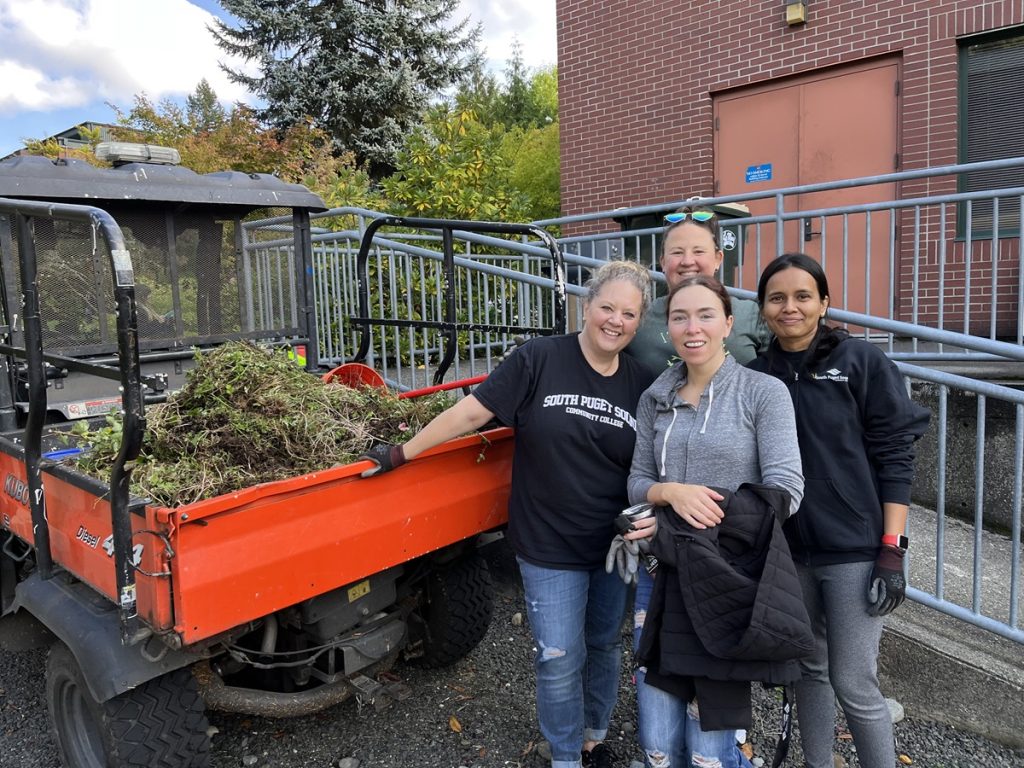
10 Electric Vehicle Charging Stations Are Coming Soon to SPSCC
Thanks to the Washington EV Charging Grant program, administered by the Washington Department of Commerce, the installation of 10 new Level 2 Electric Vehicle (EV) charging stations on the SPSCC campus will be enabled. The $75,000 grant will make it possible for these stations to be added as soon as Summer 2024.
Jason Selwitz, dean of applied technology, explained, “The charging stations further the College’s commitment to sustainability and will help meet a growing demand.”
Learn more about this exciting new campus upgrade.
Looking Ahead to New Curricular Activities That Support Climate Solutions
Through funding from the Washington State Board of Community and Technical Colleges (SBCTC), SPSCC has begun laying the groundwork for new interdisciplinary Climate Solutions education offerings. Selwitz shared, “The curricula will be designed for existing transfer and professional technical programs to inspire students to develop the professional skills needed to mitigate the effects of a changing climate. Faculty from mathematics, several sciences, philosophy, history, communications, the arts, political science, transition studies, craft brewing, automotive, and architecture are designing and implementing labs, lectures, field work, and assignments that are often multi-disciplinary in scope.”
Contact Dean of Applied Technology Jason Selwitz to learn more about SPSCC’s climate solutions curriculum initiatives.
SPSCC continues to be a community-conscious college supporting students’ aspirations to positively impact the world. Visit the SPSCC Foundation website or email Foundation@spscc.edu to learn how you can get involved and support student success.
Sponsored








































